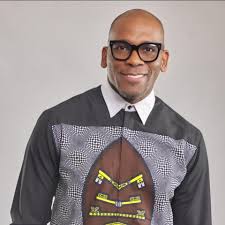Last Updated on February 12, 2025 by Bertrand Clarke
In a bold move echoing historical protests, civil rights leader Jamal Bryant has announced a 40-day boycott of Target stores, urging conscientious consumers to refrain from shopping at the retail giant starting on March 5th. This initiative comes in response to the company’s recent decisions surrounding diversity, equity, and inclusion (DEI) policies, a hot-button topic in today’s socio-economic landscape.
Pastor Bryant, who leads the New Birth Cathedral in Stonecrest, Georgia, has mobilized his congregation and extended an invitation to other communities across the nation to join in this call to action. He emphasizes the significance of collective consumer power, noting that Black Americans contribute around $12 million daily to Target’s revenue. “Just as the Montgomery Bus Boycott transformed the landscape of civil rights, I believe we can influence change through our purchasing decisions,” Bryant declared during his sermon.
As activists take to the streets, reports from various cities showcase protesters gathering outside Target locations to voice their discontent not only with the company but with broader national policies affecting their communities. Videos from Las Vegas feature demonstrators holding signs that read “We won’t go back without a fight,” reflecting a sense of urgency and determination. However, some critics question the consistency of their message, pointing out that many protests are led by individuals whose actions on social media appear contradictory—utilizing platforms like Facebook and Instagram while simultaneously decrying the corporations behind them.
This call for a boycott has generated mixed reactions among community members and beyond. Proponents of the movement argue that Target’s rollback of DEI initiatives disproportionately affects marginalized groups and represents a broader trend of ignoring social justice within corporate America. They assert that this boycott is a necessary stand against an erosion of progress that has been fought for over decades.
Contrarily, critics of the initiative have raised concerns about the effectiveness of targeting just one store while remaining silent on several other companies with similar, if not worse, practices. Observers have noted the strategic focus on Target, suggesting the protests may be rooted more in performative activism rather than substantive change.
Eric Murphy, a resident of Atlanta who supports the boycott, echoes Bryant’s sentiments, stating, “This isn’t just about Target. It’s about making sure our voices are heard, our communities are prioritized. We need to hold corporations accountable for their actions.” However, others have pointed out that while the focus is on Target, the same commitment to boycotting hasn’t been applied to other major retailers like Walmart and Amazon, stirring up questions about selective activism.
The broader implications of this boycott, however, hinge on community engagement and leadership. As many advocate for shifting consumer habits toward black-owned businesses during this boycott, the logistics of such recommendations are not lost on critics. Many are skeptical about the potential for genuine support of black entrepreneurs, highlighting challenges such as access to supply chains and product availability. This raises the question: are consumers truly able to avoid corporate stores like Target in favor of local alternatives, or is this an unattainable ideal?
In response to this skepticism, Pastor Bryant has promised resources for those participating in this boycott, including a list of 300,000 black-owned alternatives for everyday necessities. However, some community members remain cautious, pointing out that the rhetoric of supporting local businesses must translate into actual consumer support or risk being merely symbolic.
As the March 5th launch date for the boycott approaches, both supporters and detractors of the movement will be watching closely to see if this initiative can sustain momentum and drive the kind of changes it aims for. The conversation surrounding this boycott extends well beyond the aisles of Target, opening a dialogue about the responsibilities of corporations, the power of consumer activism, and the ways in which communities can unite to advocate for equity and social justice.
It remains to be seen how effective this 40-day initiative will be in shaping the landscape of consumer culture and influencing corporate policies. Will it serve as a catalyst for enduring change, or will it fade into the background of forgotten protests? That question lingers, with the weight of community expectations and aspirations hanging in the balance.










